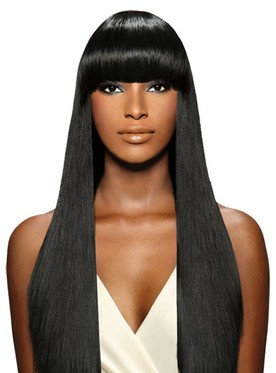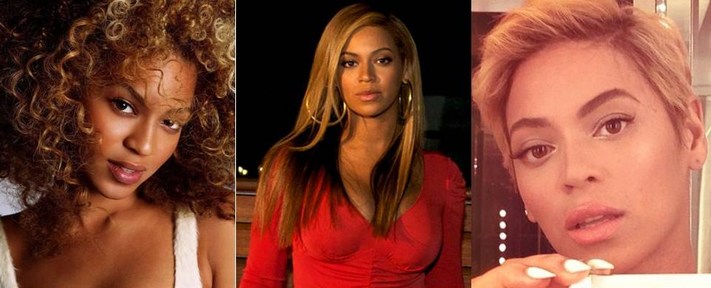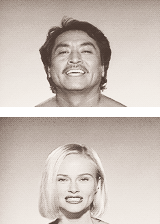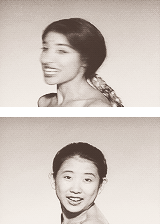 This picture's file-name was ironically "Africa26."
This picture's file-name was ironically "Africa26." When I turned 14, I got my first chemical relaxer (for those who don't know, it's a product to straighten hair). Although I had to get a touch-up every 6-8 weeks, it seemed to make my hair life simpler. I could pretty much do what I wanted, when I wanted with my hair from day to day. I’m generally a low-maintenance type of girl, so relaxers fit my "comb it and go" life. Within the last year or so, I've had issues with extremely dry scalp, dandruff and breakage. It became uncomfortable to have relaxer crème anywhere near my scalp: tense burning sensations, scabbing, soreness. It was time to explore other options.
I decided to join the ever-growing legion of African-American women "going natural" (either wearing their natural texture or straightening their hair without chemicals). I started my "natural" life continuing to have my hair straightened; this time, my stylist was using just a flat iron and humidity blocker product (humidity and moisture can cause frizz; with a relaxer, reversion isn't much of a problem). Given it was summer and my home AC was broken, keeping the frizz away became nearly impossible. A week after visiting the salon, most of my hair was straight, but my roots and nape were frizzy and hard to comb through. As I began to ask around for tips on how to remain as laid as I was with a relaxer, I learned my choice to be relaxer-less was apparently a socio-political one. Before giving me any real suggestions and answering my inquiry, some friends went on tangents about how I needed to accept what "God gave me" and stop "fearing" the texture I was born with, insisting that I wear my hair curly and implying there was no way to keep my hair straight (not true). One friend went so far as to say I had a self-hatred problem because I liked my hair straight. You see, to give context for their remarks, black Americans have an ugly history with hair and beauty measures.
 BEYtiful with all styles: Beyonce` curly, laid for the gods & shortly pixie.
BEYtiful with all styles: Beyonce` curly, laid for the gods & shortly pixie. Social norms and expectations within an area are often based on the lifestyle of the dominant culture. For example, in a farming community, growing up to be a farm-hand is the norm. If one wants to be a doctor instead, that would be considered strange or unacceptable. In America, Caucasians are the dominant race, therefore, the standard of what’s considered beautiful or the most attractive is based on Caucasian features (ex. blue eyes, light skin, straight hair). Seeking to meet this criterion, the chemical relaxer was invented and commercialized, and blacks everywhere where knocking out their kinks and curls with it. In the 1960’s and 1970’s, blacks protested beauty assimilation by rocking afros. Fast-forward to now, the hair assimilation, pride and self-hatred discussion carries on as women empty their wallets paying for wigs, weaves and extensions. After hearing his daughter was concerned about her locks, comedian and actor Chris Rock released the documentary “Good Hair” in 2009, which takes an in-depth look at black hairstory. Unfortunately, all of this stuff has caused black women to stigmatize and judge each other based on hair. If you’re straightening your hair or wearing weave, people deem you either more gorgeous or “trying to be white.” If you’re wearing your natural texture, you’re somehow less attractive or a strong sista’ who better knows who she is. Over time, “natural girls” have been so ridiculed that there are all these websites, organizations and social media groups with a “natural and proud” foundation.
Look, I actually listened to India.Arie. I don’t give a hot Dereon` how you wear your hair. It’s your freakin’ head. You stay out of my follicles and I’ll stay out of yours. I didn’t and don’t look down on you (or insult you) because you wear your natural texture, so could you stop acting like you're better -or blacker-than me because you’re keeping your kinks, curls and dreadlocks? And to my straight-haired ladies, stop turning your nose up and thinking you’re all that because you’re laid and got the latest 100% Malaysian. Those tracks say nothing about who you are on the inside and if you’re hating on the afro-chic next you, you’re probably insecure and need to grow up. You’re not in high-school anymore; it’s time to start evaluating people on their attitude and character-not their looks. Oh and fellas, you can shut your mouth too. You don’t have to deal with these attractiveness parameters on the same level we do. Beauty standards are typically set by men (we live in a patriarchal society), yet they criticize women for the lengths they’ll go to reach them (ex. surgical adjustments). I’ve heard many a guy call a woman “fake” for wearing weave and, at the same time, pay the natural woman dust. My own father called himself preaching to me about how I’m trying to “look like a white woman” when I was relaxing my hair, yet most of the women he finds attractive don’t have curly hair.
People, male and female, can stop insinuating there’s some social, psychological reason I prefer my hair straight. I know who the hell I am and I’m not trying to be anyone but her. I recently tried a twist-out (the woman in the photo isn’t me, FYI). I liked it more than I thought I would, but all the reasons I didn’t want to go curly proved themselves. It kind of shrunk and I lost quite a bit of length. I already look young and the style made me look even younger. It was difficult for me to sleep comfortably without smashing my hair or flattening the curls. My hair was really tangled and my edges and nape were still frizzy and messy looking. When I go back to a sleeker look, I’m sure someone will say “she couldn’t deal with being how she’s made.” When Caucasian women get perms to make their hair curly, no one accuses them of trying to be black or something they’re not. When women of any race dye their hair, no one accuses them of denying their identity. I understand the history is why people assume the things they do, but how about you ask me why I want my hair a certain way before you politicalize it?




 RSS Feed
RSS Feed